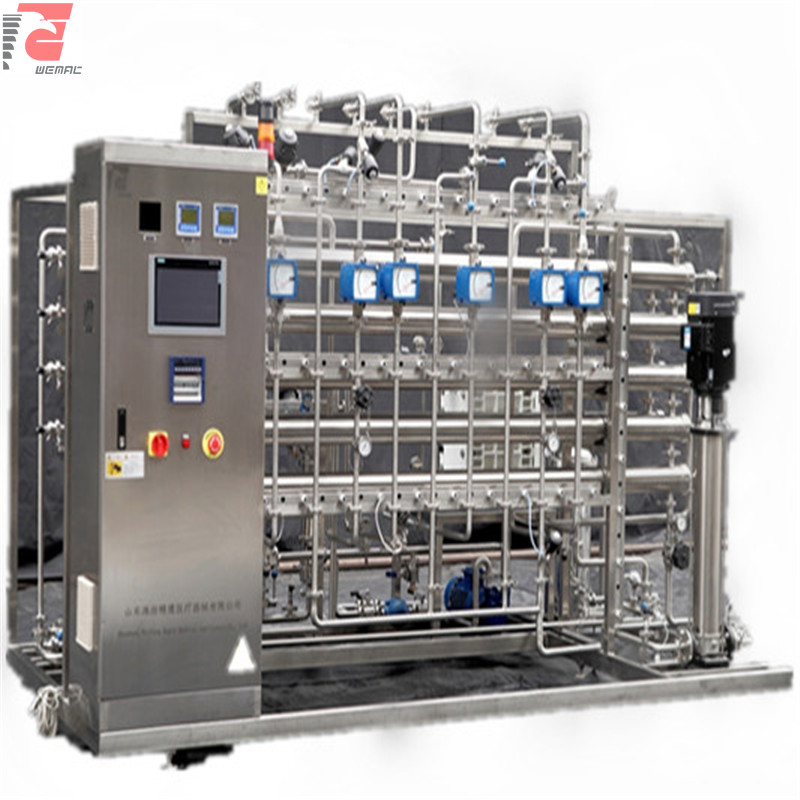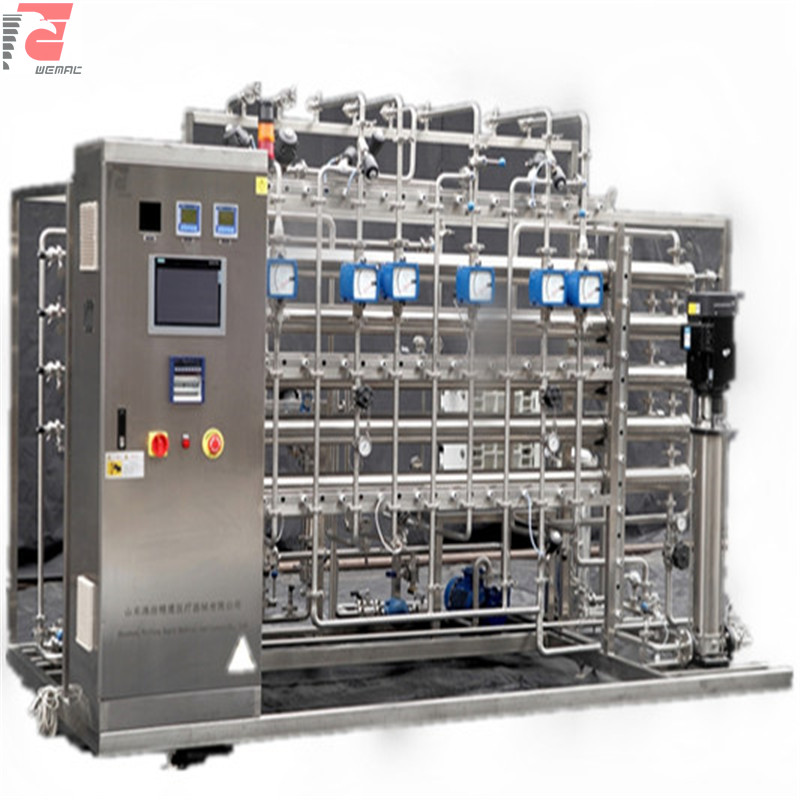
How reverse osmosis works
Reverse osmosis, also known as reverse osmosis, is a membrane separation operation that uses pressure difference as the driving force to separate solvent from solution. Pressure is applied to the material liquid on one side of the membrane. When the pressure exceeds its osmotic pressure, the solvent will reverse osmosis against the direction of natural permeation. In this way, the permeated solvent is obtained on the low pressure side of the membrane, that is, the permeate; the high pressure side is the concentrated solution, that is, the concentrated solution. If reverse osmosis is used to treat high-salinity water, fresh water is obtained on the low pressure side of the membrane and brine is obtained on the high pressure side.
How reverse osmosis water treatment works?
Reverse osmosis, also known as reverse osmosis, is a membrane separation operation that uses pressure difference as the driving force to separate solvent from solution. Pressure is applied to the material liquid on one side of the membrane. When the pressure exceeds its osmotic pressure, the solvent will reverse osmosis against the direction of natural permeation. In this way, the permeated solvent is obtained on the low pressure side of the membrane, that is, the permeate; the high pressure side is the concentrated solution, that is, the concentrated solution. If reverse osmosis is used to treat high-salinity water, fresh water is obtained on the low pressure side of the membrane and brine is obtained on the high pressure side.
Characteristics of reverse osmosis concentrated water
It can be seen from the working principle of reverse osmosis that because reverse osmosis only undergoes physical changes, the total salt in the water does not undergo phase change, and the salt content of the product water is reduced, and most of the salt will be collected on the side of the concentrated water. Therefore, reverse osmosis The concentrated water has the following characteristics:

▪ High inorganic salt: Various inorganic salts of RO concentrated water have been highly concentrated, which is close to the saturation limit, and there is a risk of scaling.
▪ High organic matter: Organic matter, particulate matter, colloidal matter, and microorganisms are dense in RO concentrated water, which is prone to deposits.
▪ High silicon salt: especially the high silicon salt content in concentrated water, the use of conventional scale inhibitors cannot be stabilized, and once it is precipitated, it cannot be effectively chemically cleaned.
▪ High hardness and high alkalinity: Because the water recovery rate is generally about 35%-85% depending on the quality of the influent water, that is, the concentrated water is partially concentrated by 2-6 times, and the calcium, magnesium and sulfate ions on the concentrated water side are concentrated in a large amount , There is a risk of scaling after reprocessing.
Reprocessing of reverse osmosis concentrated water faces problems
1. First consider the amount of concentrated water to be treated and the economy. If the company has a small amount of concentrated water, it can be considered to add influent to mix to meet the discharge standards or to green fire water for self-consumption.
2. Whether the concentrated water needs to be pretreated: If you consider further reuse, the first thing to consider is whether it needs to be pretreated to reduce the hardness and organic matter of the concentrated water, so as to avoid the pollution of the subsequent process. Processing, this needs to be further combined with detailed water quality analysis.
3. Advanced treatment of concentrated water: After the pretreatment of reducing hardness and COD, the advanced treatment process should be further considered according to the needs of customers. Is it to achieve partial reuse or achieve zero discharge? To achieve partial recycling, different processes can be selected according to the owner's recycling rate requirements, such as reverse osmosis, ion exchange, electrodialysis, AMBC, etc. If the customer requires zero emission, then the evaporation crystallization process must be considered.
Key points of reverse osmosis design
Each component in the system operates within a certain limit
▪ Minimize the influence of concentration polarization
Maximum product water flow
Maximum recovery rate of single component
Minimum concentration of water flow
▪ Avoid physical damage to membrane elements
Maximum feed water flow
Maximum water supply pressure
Maximum allowable pressure drop
▪ Factors affecting the limit value
Water supply quality and pollution degree
Effective membrane area of membrane element
The structure of the membrane element (concentrated water flow channel width, etc.)
▪ Design reasonable recovery rate
(The recovery rate directly affects the quantity and quality of concentrated water)
▶Restrictions on the recovery rate of seawater desalination
High TDS leads to high osmotic pressure
Limited recovery rate 35% ~ 55%
▶Restrictions on the recovery rate of brackish water treatment
The recovery rate is usually 70% ~ 85%
High hardness, high insoluble salt causes scaling
The recovery rate can be improved by softening and adding scale inhibitor
High pollution causes fouling and requires low recovery rate
▶Restrictions on the recovery rate of produced water quality requirements
The lower the recovery rate, the better the water quality
If you want to ask anything just fill in the form below and send us.